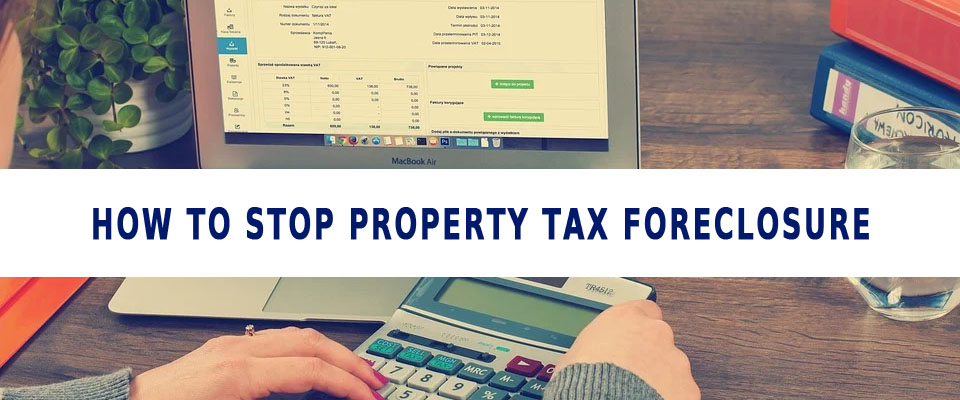Two things are certain in life: death and taxes. Trying to get away from either of them will likely result in a whole heap of trouble, particularly when it comes to the latter. Failing to pay your taxes can lead to a mountain of debt and, in the worst-case scenario, even a prison sentence.
Of course, not all taxes are the same. One of the most common (and most hated) types of taxes is the property tax. In the United States, the amount of money you have to pay to the government each year is equivalent to a certain percentage of your property’s value and varies from state to state.
For example, Hawaii is one of the best states to own property in because the effective property tax rate is equal to just 0.30% of its value. New Jersey, on the other hand, has the highest property tax rate of all of the fifty states, at 2.21% of the property value.
Not paying your property taxes on time can lead you to face what is known as property tax foreclosure, which can effectively result in your home being taken away from you. Keep reading if you want to find out more about the process and how to prevent its worst consequences.
How Does Property Tax Foreclosure Work?
If it runs its course, the property tax foreclosure process can not only result in your home being foreclosed on and sold off at an auction, but it can also severely damage your credit rating. Thankfully, it drags on for three years, and there are quite a few things you can do to stop it in its tracks.
If you fail to make your monthly tax payments on time, financial penalties will be applied, resulting in higher property tax rates. If you fail to pay your property tax for one full year, your home (or other immovable property) will be placed on a preliminary forfeiture list. This stage is the easiest to get out of, and if you have the means to do so, you should not put off your payments any longer.
The way to remove your home from the preliminary list is to pay back the owed amount, as well as the additional interests and fees. After one year of delinquency, you’ll be subject to 1.5 percent interest per month (compared to the 1% monthly increase during the first year). Throughout the duration of that year, you’re able to pay off your debt as a series of payments. The longer you wait, the more interest you will accumulate, so it’s better to start as soon as you can, even if it means having to succumb to frequent small payments.
After the second year passes by and your delinquency is continued, your home will be forfeited to the country treasurer. Forfeiture is different from foreclosure in one fundamental way — you’re not kicked out of your home, and you still have the chance to pay off the back taxes. Once your home is forfeited, though, the only option you’re left with is to pay it all as one lump sum — this can be incredibly difficult to do, especially if you failed to make your tax payments because of a bad financial situation. If that payment is not made and your third year of property tax delinquency is through, the property will be foreclosed on and auctioned off to the highest bidder.
How To Prevent the Foreclosure
Depending on your stage of property tax delinquency, there may be quite a few things to keep the state from taking away your property. The first and the easiest way to do so is, of course, paying off your back taxes. If you’ve only been delinquent for a year, then you can set up a payment plan that will help you pay off the debt while remaining within your financial capacity.
Things get complicated when you fail to pay your property taxes for two years straight, and the only option you’re left with is a single lump payment that covers all of the months of your delinquency. If you really don’t want to give up your home at this point, you may want to look into emergency loans that will help you pay off your debt to the government. Of course, if you choose that option, then you’ll have to keep in mind that what you’re doing is just buying some time to accrue the cash you need to pay off your debt, this time to a private entity that may charge you with much higher interest rates than the state.
One final option to stop property tax foreclosure and get to keep your property is applying for a property tax deferment. If your application is successful, you’ll get more time to accumulate the necessary money without further penalties. The catch is that deferment applicants face some really strict requirements and only a very small percentage of people who apply actually get their taxes deferred. Your chances are higher if you can prove a really low income or are a veteran, elderly or disabled person.
Sell Your Property Before the Foreclosure
Life doesn’t always pan out the way we want it to, and sometimes, there’s just no way to pay off all of your back taxes on time. In these dire cases, the best thing you can do is sell your home to stop the foreclosure. The back taxes will become the buyer’s responsibility, and you’ll come out of it with a nice cash injection that will allow you to look around for another place to live comfortably, with lower taxes and better opportunities to save and make money.
Individuals won’t always be keen on buying a house riddled with back taxes, which is why your best option is to sell to a company specializing in buying houses for cash, such as Highest Cash Offer. They will carry out a thorough evaluation of your property, assess its cash value, and present you with an offer that might just help you avoid the fiscal trouble you’ve found yourself in!








 Highest Cash Offer is a real estate solutions company. Our team of experts specialize in assisting homeowners with a wide variety of solutions to any real estate problem. Whether we buy your house for cash or not, our goal is to help you get the desired outcome you deserve.
Highest Cash Offer is a real estate solutions company. Our team of experts specialize in assisting homeowners with a wide variety of solutions to any real estate problem. Whether we buy your house for cash or not, our goal is to help you get the desired outcome you deserve.